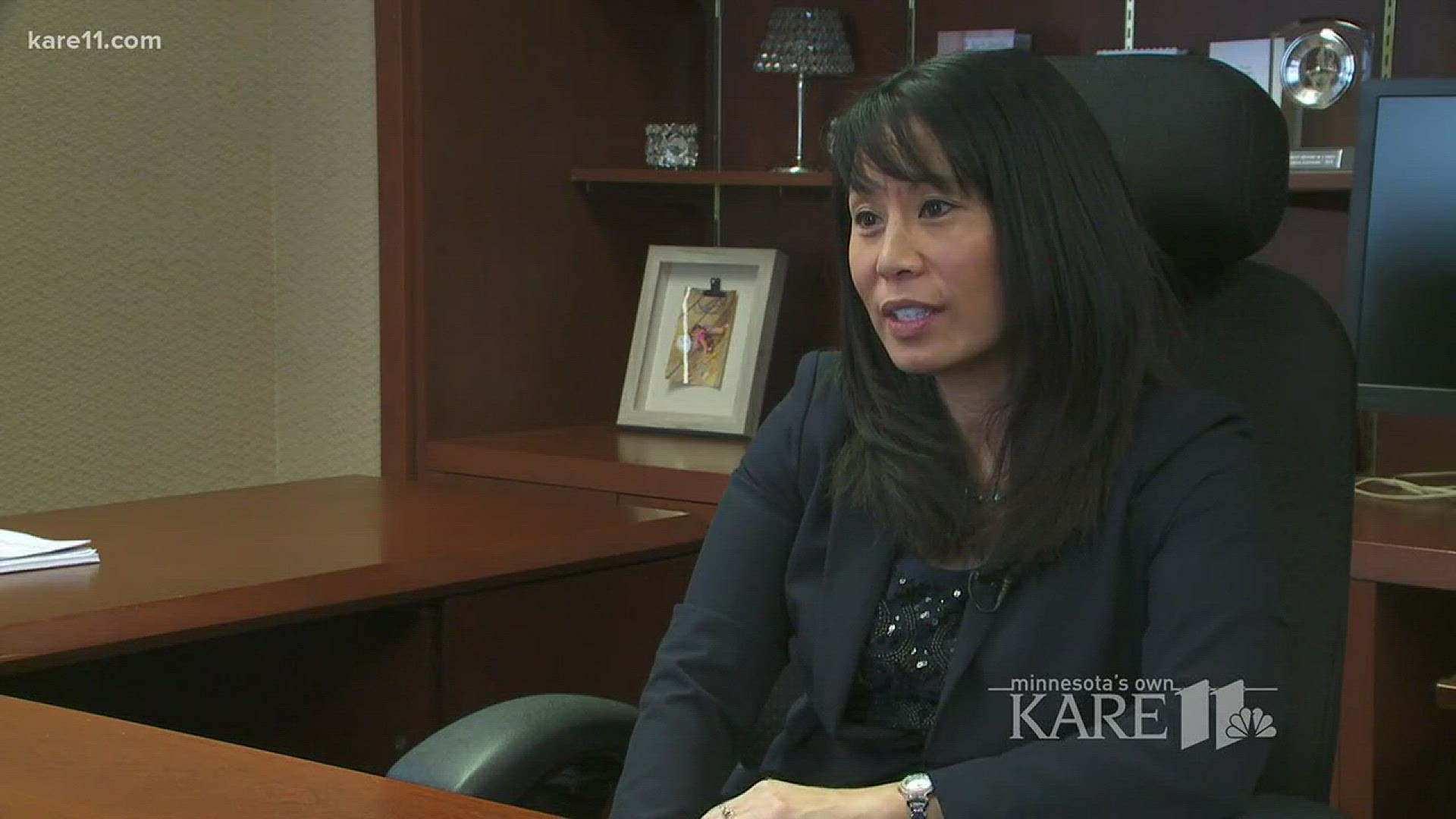ST. PAUL, Minn. -- Veteran lawyer Sophia Vuelo has made history in her own right, becoming Minnesota's first Hmong American judge in December.
Governor Mark Dayton appointed her to fill a vacancy in the Second Judicial District, headquartered in the Ramsey County Courthouse.
"It was very surreal, and in some ways it still is," Vuelo told KARE. "One can hope that hard work will come to fruition, but you never know what life will throw at you, and there's no guarantees in any of this."
Vuelo's part of a trend in Minnesota, an increasingly diverse bench. In the first seven years of Dayton's tenure, the number of judges of color has increased by 93 percent. The number of female judges has increased 35 percent, and the number of Hispanic judges has increased 84 percent.
"We only look for highly qualified candidates, and from a pool of highly qualified candidates the commission recommends a set of them for the governor," said Jerry Blackwell, who heads the Minneapolis law firm Blackwell Burke and serves on Dayton's Judicial Selection Commission.
Dayton's appointments to the Minnesota Supreme Court garnered much attention -- the first and second black women on the high court, the first Native American justice and the first openly gay justice. But that effort to recruit diverse candidates has also played out in appellate court and the district court level.
"Law has always required special consideration be given to identifying candidates of color, both in the interview process and also in recruiting. What's been unique is the way Governor Dayton has taken that to heart."
Ramsey County Judge Jeffrey Bryan, who has worked to recruit new judges as part of the Minnesota Hispanic Bar Association, said a diverse courtroom also instills more confidence.
"Diversity on the bench and among lawyers improves our legal system and our day-to-day lives in Minnesota," Judge Bryan, a 2013 Dayton appointee, told KARE.
"Witnesses and parties of color in civil, family, and criminal cases may feel that attorneys and judges of color can better understand them. That means they will feel like they participated in a fair process and will help develop a high degree of trust in our judicial system."
But he said diversity doesn't just affect the perception of justice, but also plays a role in the outcomes, because judges have to make value judgments in addition to applying specific laws. And those judgments often are based on personal experience.
There's no doubt that Vuelo is more than qualified for the new role she'll be playing. She's been a practicing attorney for 19 years, logging time as a prosecutor in Ramsey County and Rochester, working for the Ramsey County Public Defender's office, serving as managing attorney for Catholic Charities and heading a private law firm.
"Certainly there's excitement within the Hmong American community, because for the first time they get to see someone that looks like them and shares their personal background," Vuelo remarked.
"I'd just like to encourage young people to continue to work hard, to strive for whatever goals or dreams you desire for, because this is your country too."
Vuelo came to the United States nearly 40 years ago as a refugee from Thailand, with her mother who was a Vietnam war widow and single parent to seven children. The family settled in Eau Claire, Wisconsin. Vuelo was president of her senior class at Memorial HIgh School and also homecoming queen.
"I was fortunate to come here as a child of six years old. I'm the only child in my mother's family who had a K-through-12 public education," Vuelo explained. "My older siblings were already in their 20s, and never had a chance to go to high school or college."
She was already privately sworn in, but will have a public ceremony Thursday with the oath administered by Minnesota Supreme Court Chief Justice Lori Gildea.

